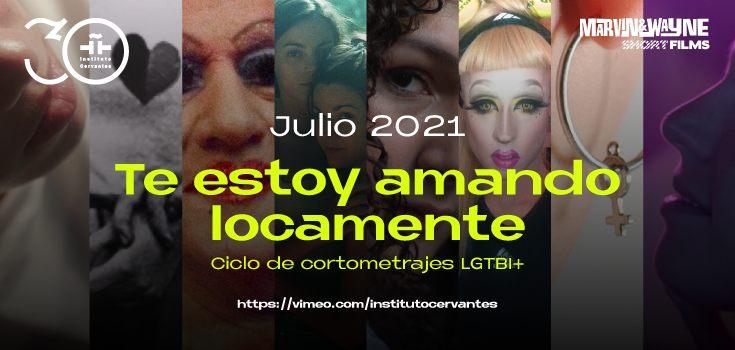COLECCIÓN DE VIAJEROS – Latinoamérica/1
La colección de libros de viajeros del Instituto Cervantes de Londres es una de las más destacadas de las bibliotecas de los Institutos Cervantes en el mundo. Esta colección representa fundamentalmente la imagen de España en la literatura de viajes de escritores extranjeros. Cubre un período de más de tres siglos de relatos sobre la historia, la sociedad y la cultura españolas desde principios del siglo XVIII hasta bien entrado el siglo XX y en estos libros se recoge la visión que se ha tenido de España desde diversos países, entre ellos Gran Bretaña, Francia, Alemania, Italia o Estados Unidos.
Además de esta colección de libros de viajeros que visitaron España, el Instituto Cervantes de Londres posee algunos libros de viajeros que visitaron algunos de los países Latinoamericanos. En las próximas entradas al blog vamos a ocuparnos de ellos.
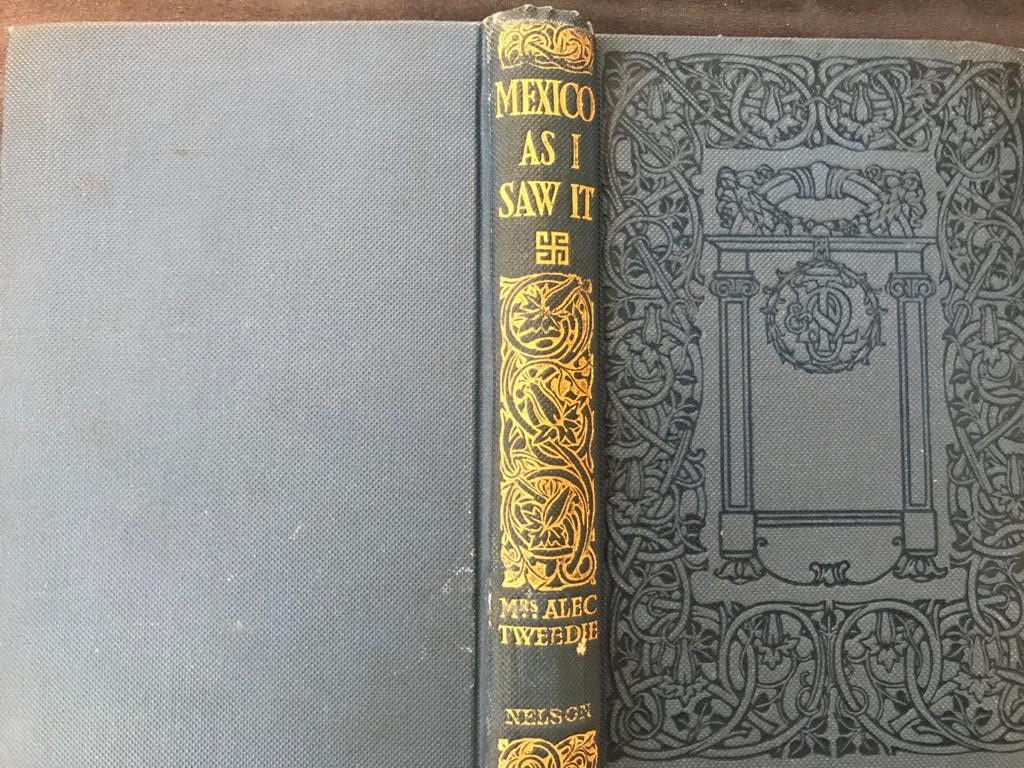
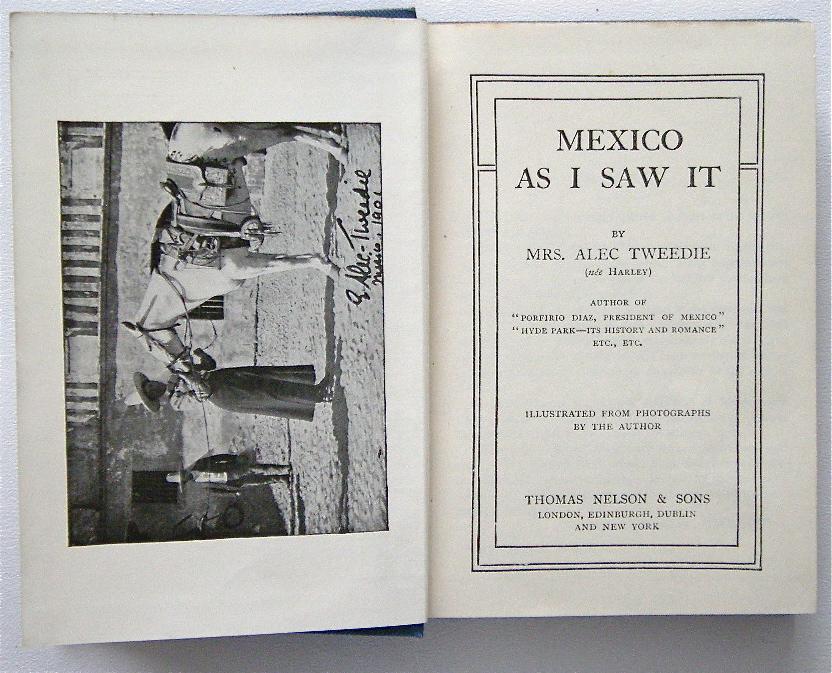
MEXICO
Mexico as I Saw it / Alec-Tweedie, Mrs (Ethel),) (1862-1940)
Published by Thomas Nelson & Sons, [1911].-480 páginas
Este libro es un relato de dos viajes que la autora hizo a México en 1901 y 1906 y los cambios producidos en ese tiempo, con un prefacio de esta edición de 1911
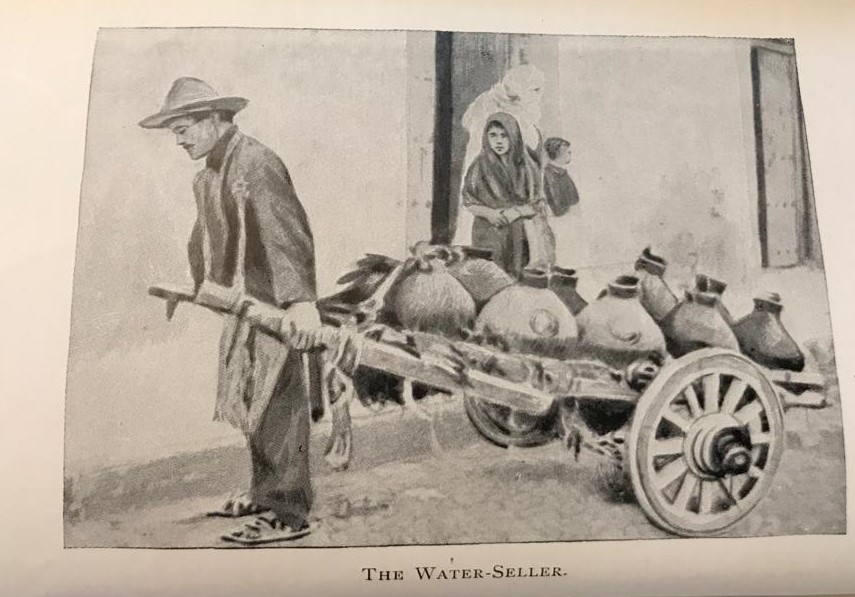
This book is an account of two trips he author made to Mexico in 1901 and 1906 and the changes wrought in that time with a preface dated 1911.
La autora fue escritora de viajes, biógrafa, historiadora, periodista, editora, fotógrafa y artista, y también escribió bajo el nombre de Ethel B. Harley.
The author was a travel writer, biographer, historian, journalist, editor, photographer and artist, and also wrote under the name of Ethel B. Harley.
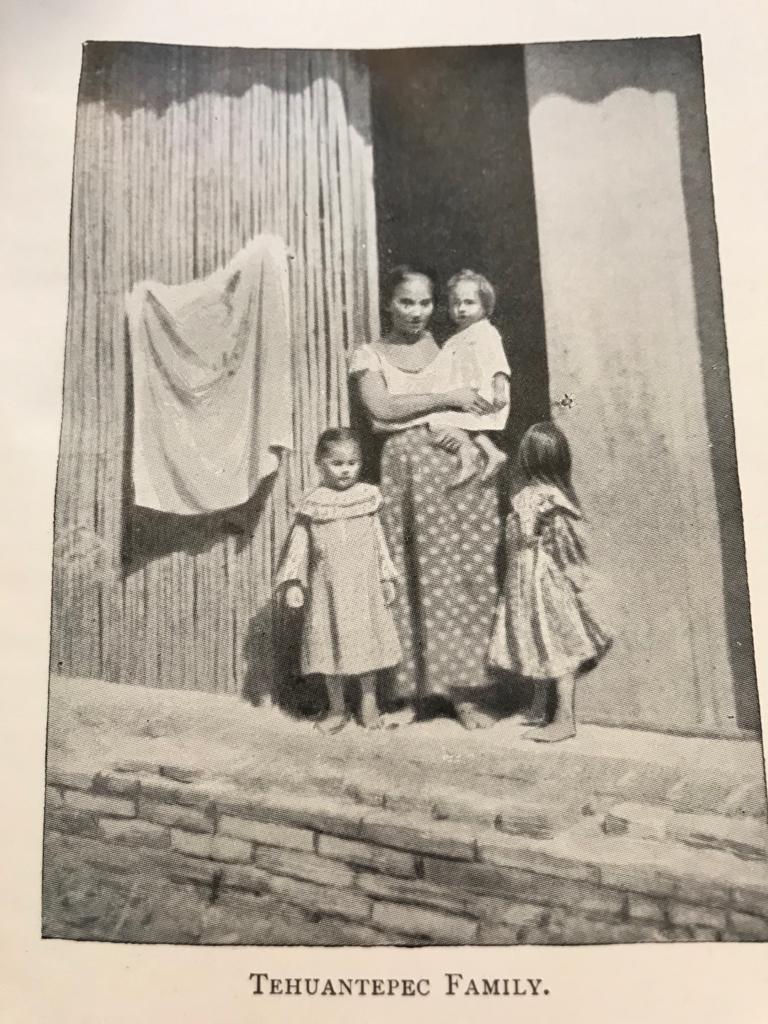
About the first edition / Sobre la primera edición de 1901
Begins with a moving account of the Galveston Disaster of 1900 and its aftermath, before moving on to an extensive investigation of Mexico, illustrated throughout with excellent photos. Excellently written, though language and to a certain extent attitudes (though still progressive) are naturally of another age. Large fold-out map to rear.. 8vo. 472pp
Link to the first edition / enlace a la primera edición
About the autor / Sobre la autora
http://www.kathrynshistoryblog.com/2021/01/adventure-and-tragedy-life-of-mrs-alec.html
Formación de profesores de español (ELE)

El Instituto Cervantes de Londres organiza los siguientes cursos de formación de profesores:
Diseño de secuencias didácticas y presentación de contenidos (10 horas) – En línea
- 6 de octubre – 3 noviembre
- 17 noviembre – 15 diciembre
- Descripción del curso
Introducción a la enseñanza de español (10 horas) – En línea
- 2 y 3 de octubre
- Descripción del curso
Cómo preparar clases a distancia (10 horas) – En línea
- 5 octubre – 2 noviembre
- 16 noviembre – 14 diciembre
- Descripción del curso
Curso de formación para profesores de ELE para niños – En línea
- 9 octubre – 11 diciembre
- Descripción del curso
Curso de formación para profesores de ELE de adolescentes: preparadores de GCSE y A LEVEL de español – En línea
- 7 octubre – 9 diciembre
- Descripción del curso
Curso de gramática para profesores de ELE – En línea
- 6 octubre – 8 diciembre
- Descripción del curso
Cursos para preparadores y examinadores de DELE – En línea
- Nivel A1 – A2: £150 (6 septiembre – 3 octubre) / (8 noviembre – 5 diciembre)
- Nivel B1 – B2: £150 (4 – 31 octubre)
- Nivel C1 – C2: £160 (8 noviembre – 5 diciembre)
- DELE Escolar Nivel A2/B1: £140 (4 – 31 octubre)
- Descripción de los cursos
Matrícula
Para matricularte, descarga este formulario y envíalo con tus datos y copia de la transferencia realizada a cenlon@cervantes.es y te enviaremos la confirmación de la matrícula.
El plazo de matrícula se cierra 24 horas antes del comienzo del curso. En el caso de que se reciban solicitudes una vez cerrado el plazo y solo si hay plazas disponibles, se podría tramitar la matrícula pero no se asegura el acceso del alumno a la primera sesión del curso.
Spanish is the most popular A-level language for the second year in a row
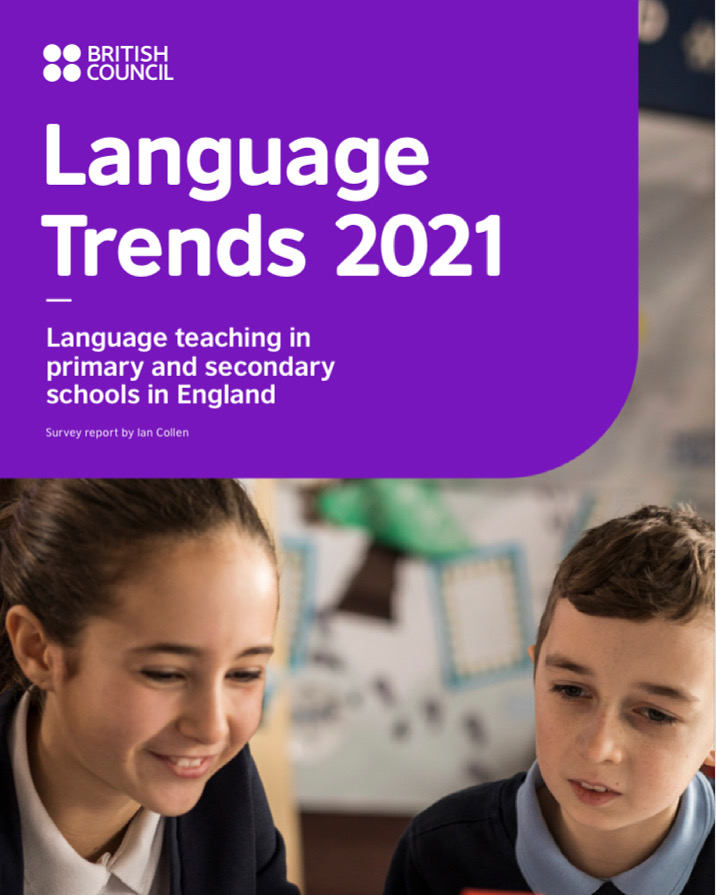
For the first time, Spanish attracted over 100,000 GCSE entries – almost double the 2005 statistic – and was the most popular A-level language for the second year in a row. If current trends continue, the report predicts that Spanish is likely to overtake French as the most popular GCSE language by 2026, according to a new British Council report published today.
The Language Trends 2021 report surveyed teachers at more than 1500 primary, secondary and independent schools across England. The report, which has been published annually by the British Council for nearly twenty years, gathers information about language teaching and learning in England.
At Key Stage 3, Spanish is taught by 74 per cent of responding state schools and 89 per cent of responding independent schools.
To read the full report, please visit: https://www.britishcouncil.org/research-policy-insight/research-reports/language-trends-2021
Spanish course for beginners with trainee teachers
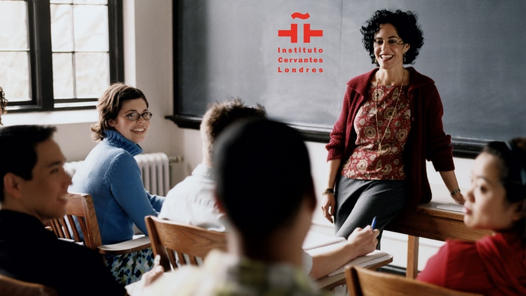
Join our 25h Spanish course for beginners with trainee teachers monitored by our native academic staff.
Cost: £25, to be refunded if the student attends 80% of the sessions.
12 to 23 July, Monday to Friday, 10am to 12:30pm.
Enroll now: cenlon@cervantes.es or calling 020 7201 0750
For more information about our courses, please visit our website.
«Te estoy amando locamente. Ciclo de cortometrajes LGTBI+»
Durante el mes de julio, el canal de Vimeo del Instituto Cervantes, en colaboración con la distribuidora cinematográfica Marvin & Wayne, acogerá ocho relatos diferentes de ocho cineastas con una mirada y un quehacer muy personal en el ciclo «Te estoy amando locamente. Ciclo de cortometrajes LGTBI+», que toma su nombre de la canción popularizada por Las Grecas en los años 70.
Los cortometrajes que componen este ciclo nos presentan historias personales, reflexiones, testimonios y retratos que dirigen la mirada hacia realidades infrarrepresentadas en el cine —y, cabría decir, en todas las manifestaciones artísticas—: son relatos que tratan, especialmente aunque no solo, sobre la identidad de género, sobre el amor homosexual y sobre la transexualidad.
¡Celebra con nosotros esta fiesta de la diversidad!
Programa completo: vimeo.com/showcase/te-estoy-amando-locamente,
▶ 6 de julio: «Una dedicatoria a lo bestia» (2019), de Nucbeade vimeo.com/557671872
▶ 9 de julio: «Después también» (2019), de Carla Simón vimeo.com/557676690
▶13 de julio: «Su» (2019), de Laia Foguet vimeo.com/557679177
▶16 de julio: «Víctor XX» (2015), de Ian de la Rosa vimeo.com/557683845
▶20 de julio: «Cantando en las azoteas» (2017), de Enric Ribes vimeo.com/557970147
▶23 de julio: «Snap» (2018), de Felipe Elgueta y Ananké Pereira vimeo.com/557989467
▶27 de julio: «Alma» (2018), de Santiago León Cuéllar vimeo.com/558009021
▶30 de julio: «El cuerpo de la mujer sin sombra» (2021), de Tamara García Iglesias vimeo.com/558011405
Todos los títulos estarán disponibles en el canal de Vimeo del Instituto Cervantes durante 48 h, a partir de las 20.00 h [GMT+2] del día indicado.
Organizan:
– Instituto Cervantes cervantes.es
– Marvin & Wayne marvinwayne.com/es
El salmantino Rodrigo Ledesma Amaro, Premio Talento Emergente CERU 2021

La Sociedad de Científicos Españoles en Reino Unido (CERU) y Fundación Banco Santander han otorgado, en su VI edición, el Premio Talento Emergente CERU 2021 al Dr.Rodrigo Ledesma Amaro (Salamanca, 1987) por su excelente carrera investigadora en el campo de la Bioingeniería y Biología sintética y en reconocimiento a su magnífica contribución a la investigación académica y a su aplicación en la industria.
En esta edición se han recibido un total de veinte candidaturas para optar al premio, todas ellas de altísimo nivel y cubriendo un amplio rango de áreas científicas. Las candidaturas han sido evaluadas por un comité formado por investigadores de reconocido prestigio internacional como Elena Caro Bernat (Universidad Politécnica de Madrid), José Antonio Carrillo de la Plata (University of Oxford), Mara Dierssen (Universidad Autónoma de Barcelona), Carmen Galán (University of Bristol), Sergio Lozano (University of Oxford), Mercedes Maroto Valer (Heriot-Watt University) y Carlos Roma Mateo (Universidad de Valencia) presidido por la catedrática Esther Rodríguez Villegas (Imperial College London).
“Este premio no sólo representará un gran reconocimiento a la labor investigadora de este joven y prometedor científico, sino que servirá además para impulsar colaboraciones internacionales e intersectoriales, así como la divulgación de su trabajo al público general”.
Rodrigo Ledesma Amaro, licenciado en Biotecnología e Ingeniería Química por la Universidad de Salamanca, Máster en biotecnología por la Universidad Autónoma de Madrid y doctor por la Universidad de Salamanca, lidera un laboratorio en el Imperial College (Londres) de referencia a nivel mundial por su trabajo en el desarrollo de nuevas técnicas de biología sintética y edición genética como el CRISPR, para la manipulación del metabolismo de microorganismos y el impulso de métodos de bioproducción sostenibles. Algunas de las contribuciones del Dr. Ledesma Amaro en el campo de la biotecnología han sido la creación de las cepas de levadura con mayor producción de beta-caroteno y ácido fólico del mundo, así como la identificación de genes involucrados en la producción de vitamina B2, que han sido patentadas y usadas por BASF. Además de productos químicos y combustibles de alto valor, el laboratorio del Dr. Ledesma Amaro también trabaja con biomateriales para aplicaciones biomédicas y ambientales, y estudia el conjunto de microorganismos y el desequilibrio en estas comunidades microbianas que conducen a enfermedades, tales como el microbioma de la piel o la cicatrización de heridas, representando un progreso en biomedicina. Su investigación y avances también le han permitido crear una start-up llamada CorNatural.
Según Borja Baselga, Director de Fundación Banco Santander: “La excelente carrera investigadora de Rodrigo en el desarrollo y promoción de métodos de bioproducción sostenibles trata de acercar entre sí la ciencia básica y aplicada tanto en España como en Reino Unido. El premio no solo representa un reconocimiento a sus logros, sino que incentivará nuevas colaboraciones internacionales y la continuación de su fructífera carrera investigadora. Una vez más se vuelve a poner de relevancia el prestigio que se han ganado los investigadores españoles en el extranjero”.
En palabras del galardonado: «Los procesos biotecnológicos basados en microorganismos llevan usándose desde la antigüedad para producir compuestos de interés como alimentos (pan) y bebidas (vino, cerveza). Gracias a la biología sintética y la ingeniería metabólica ahora somos capaces de mejorar estos microorganismos para fabricar aún más productos: combustibles, medicamentos, vitaminas, materiales, etc. Aunque aún queda mucho camino por recorrer, en mi laboratorio trabajamos para que en un futuro no tengamos que depender del petróleo y podamos tener una economía sostenible y circular. Es todo un honor recibir el premio Talento Emergente de CERU y la Fundación Banco Santander así como el reconocimiento al esfuerzo, dedicación y frutos de mi investigación. «
Con la VI edición del Premio Talento Emergente, se consolida el compromiso de CERU de apoyar, dar visibilidad a los científicos españoles en Reino Unido y fomentar las relaciones entre los dos países. José Javier Burgos Mármol, presidente de esta Sociedad, ha remarcado “la calidad de las solicitudes recibidas en esta sexta edición del premio, así como en ediciones anteriores, reflejando la alta competitividad del premio y la excelente labor investigadora que desempeñan los científicos españoles en el Reino Unido.” El presidente de CERU destacó la excelente trayectoria académica del galardonado, así como su compromiso con la multidisciplinariedad, la divulgación, y las colaboraciones a nivel internacional entre Reino Unido y España, acorde con los objetivos que persigue nuestra sociedad de investigadores. En palabras de Burgos Mármol: “Se trata de una persona joven con una extraordinaria progresión que creemos será un perfecto embajador de los valores que CERU defiende como sociedad y un ejemplo inspirador como talento científico español en el Reino Unido.»
La candidatura de Rodrigo destaca tanto su calidad investigadora como su objetivo de tender puentes entre ingeniería y ciencia básica, así como el carácter multidisciplinar de sus proyectos de investigación y el impacto de las nuevas tecnologías en diversos aspectos de nuestro día a día.
Celebrating the centenary of Luis García Berlanga’s birth
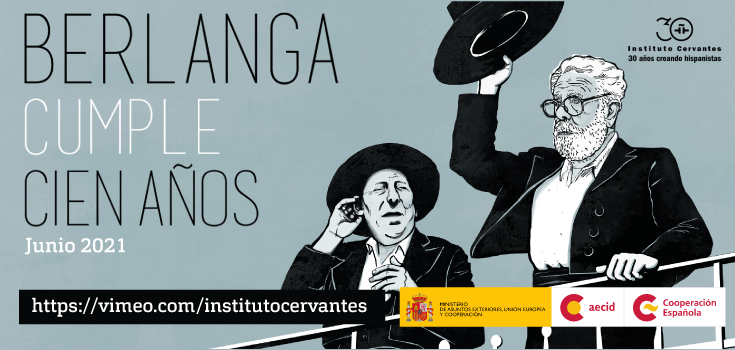
This June we have been celebrating the centenary of Luis García Berlanga’s birth, one of the great filmmakers of Spanish cinema. His long and fruitful cinematographic career, his unmistakable signs of identity as a creator, his corrosive humour and his work in directing, make him one of the best classic filmmakers of 20th century Spanish cinema.
In our library, you can borrow some of his most iconic DVD movies such as «Placido», «El verdugo» and «Bienvenido Mister Marshall», among others, and some books about him.
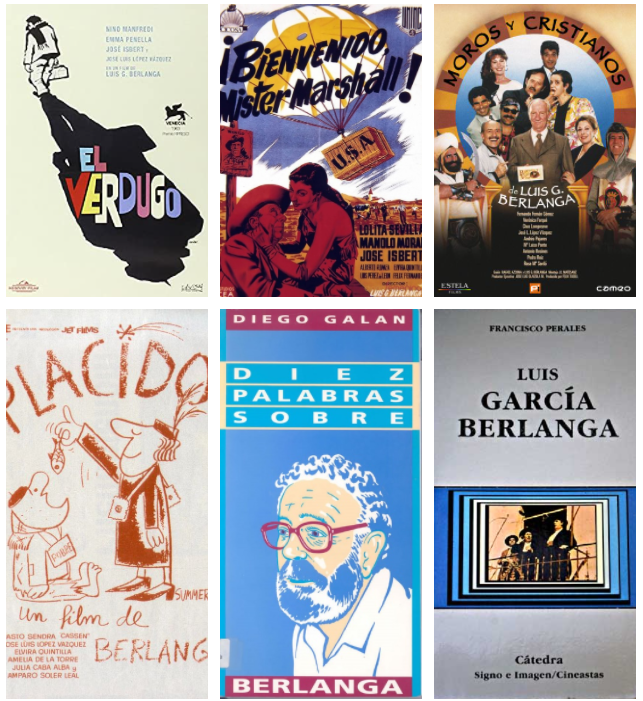
In 1980, Luis García Berlanga was interviewed in the TV programme A fondo:
We also recommend the consultation of Digitalia database – for users with a library card – where his name is mention in 140 books on Spanish cinema:
Celebrando el centenario del nacimiento de Luis García Berlanga

Este mes de junio hemos estado celebrando el centenario del nacimiento de Luis García Berlanga, uno de los grandes cineastas del cine español. Su larga y fructífera trayectoria cinematográfica, sus inconfundibles señas de identidad como creador, su humor corrosivo y su trabajo en la dirección, le hace ser uno de los mejores directores clásicos del cine español del siglo XX.
En nuestra biblioteca se pueden sacar en préstamo algunas de sus películas en DVD más icónicas como “Plácido”, “El verdugo” y “Bienvenido Mister Marshall”, entre otras, y también algunos libros sobre él.

En 1980, Luis García Berlanga fue entrevistado en el programa A fondo:
También os recomendamos que consultéis la base de datos Digitalia – para los usuarios con carnet de la biblioteca- en donde su nombre aparece mencionado en 140 libros sobre cine español
Free Onsite Spanish Beginners Course with Trainee Teachers
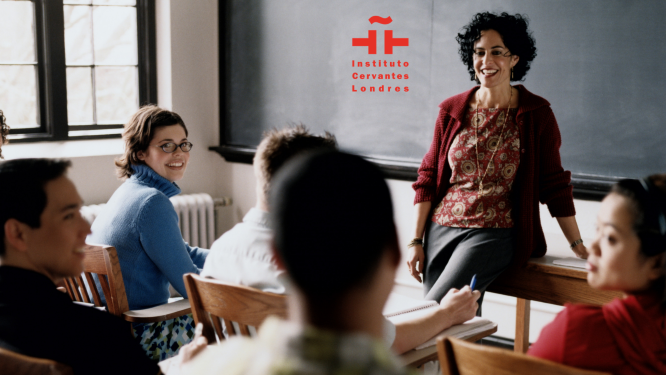
This summer we are offering a free face-to-face intensive A11 beginners 25 hour course. All teachers are native speakers and will be monitored by Instituto Cervantes academic staff.
When? Monday to Friday, from 12th to 23rd of July.
What time? 10.00 – 12.30
Where? At our premises in Devereux Court
How much? The course will have an administrative fee of £25 which will be refunded completely if the student attends 80% of the sessions (8 out of 10).
Due to its popularity, we recommend enrolling ASAP by writing to cenlon@cervantes.es or calling 020 7201 0750.
«The secret to being a good translator is to work really hard at acquiring the necessary skills»
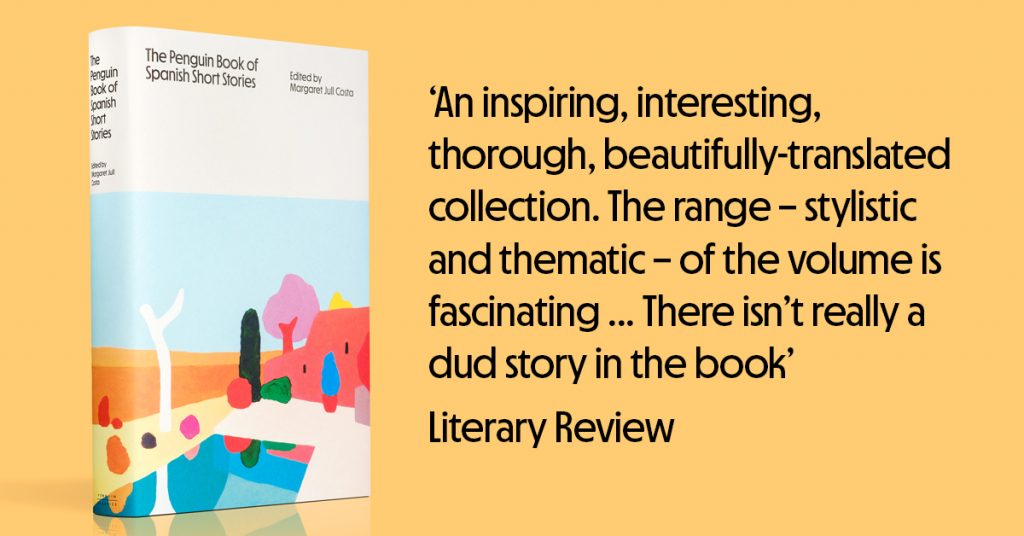
Ahead of the publication of THE PENGUIN BOOK OF SPANISH SHORT STORIES, edited by highly revered Margaret Jull Costa on June 24th, by Penguin Classics, we interview her in our blog.
This wonderful anthology brings together over 50 stories from across the Spanish canon. The list of the contributors, many of which have never before been translated into English, includes giants of Spanish literary culture, from Emilia Pardo Bazán and Leopoldo Alas, through Mercè Rodoreda and Manuel Rivas, to Ana Maria Matute and Javier Marías.
This exciting new collection celebrates the richness and variety of the Spanish short story, how was the editing process?
MJC: Well, as you can imagine, it involved a lot of reading, but that was such a pleasure, and led me to making lots of discoveries. The hardest part was having to leave some stories or authors out, but that is the nature of anthologies.
The book includes authors from the nineteenth century to the present day, could you tell us some insights about your selection?
MJC: As well as including all periods from the nineteenth century to now, I wanted the stories to be as varied as possible, some funny, some tragic, some fantastical, some pure realism, etc. and covering as wide a range of human experience as possible too.
It features over fifty stories, what can the audience expect to see?
MJC: I hope they’ll get a real idea of the breadth and variety of Spanish writing and will be introduced to writers they will never have heard of and might well want to read more of.
Which authors are favourites for you?
MJC: My main criterion was only to include stories I loved, so in that sense, they are all favourites!
Which author do you consider a hidden gem for the British public?
Again, there are many candidates, especially among the older women writers – Esther Tusquets, Carmen Martín Gaite, Mercè Rodoreda, Rosa Chacel, Ana María Matute – who tend to be overlooked (a) because they’re women and (b) because they’re dead.
You are a revered translator, in your opinion what is the secret to be a good translator?
MJC: I’m not sure I am ‘revered’! But I am, I hope, respected. And the secret to being a good translator is, as it is for most professions, to work really hard at acquiring the necessary skills. For a translator those key skills are being a very good reader, sensitive to register and tone and voice, and having a real passion for language, your own and the languages you translate from, and a delight in using your own language to its full potential. Oh, and a keen sense of curiosity, always wanting to learn more. Learning a language is a never-ending journey.
You earned an undergraduate degree in Spanish and Portuguese from the University of Bristol, why did you decide to study Spanish at that time?
MJC: I had spent time in Spain when I was younger, between the ages of eighteen and twenty-one, and pretty much taught myself Spanish. Then, when I was twenty-three, I decided I wanted to go to university to study language and literature, so I studied part-time for my Spanish A-Level and got a place at Bristol.
